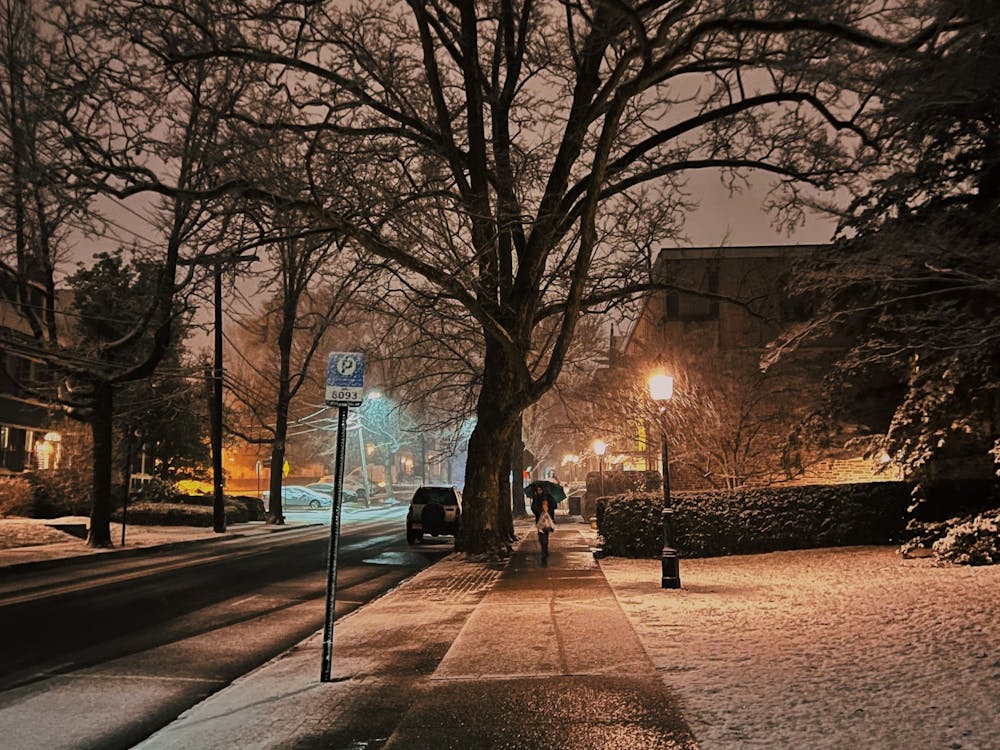At a meeting last week to explore potential traffic solutions in the West Windsor area, President Tilghman said the University would not develop the land it is purchasing from the Sarnoff Corporation during her tenure.
Later in the meeting, the head of the Penns Neck Environmental Impact Statement Partners Roundtable — the group that organized the meeting — resigned for unrelated reasons.
These meetings aim to balance development and environmental concerns in central New Jersey, where traffic congestion has soared during the past decade.
The University agreed in October to purchase 90 acres of Sarnoff's West Windsor campus.
The land will not be purchased, however, until West Windsor Township approves Sarnoff's overall development plan, said Robert Durkee '69, the University vice president for public affairs.
Since the beginning of the University's discussions with Sarnoff, he said, the University has said the land would not be developed in the near future. If the University does eventually develop the land, it will be used for academic purposes.
Tilghman explained in an e-mail, "The reason we are considering the purchase of [this land] is to ensure that over the long term Princeton will have the capacity in land to expand."
The West Windsor fields between Lake Carnegie and Route One were bought by the University in the 1920s and the 1940s with a similar goal. That land will also remain undeveloped for several years, Durkee said.

The Sarnoff land is located along Rt. 1 and the Millstone River, in the area where the N.J. Department of Transportation has proposed building a bypass to improve traffic flow. That bypass would allow four traffic lights to be eliminated on Rt.. 1 and, planners hope, ease congestion.
The proposal — known as the Millstone Bypass — calls for the construction of a two-lane road. That road would extend from the intersection of Washington Road and the Amtrak rail line across Rt. 1 to where Washington Road crosses the Delaware and Raritan Canal.
The state would have to purchase University land for this project, Durkee said.
That proposal has met stiff opposition from local leaders who claim it would have negative environmental effects on the canal.

The University has not taken a public position on the proposal. Tilghman acknowledged the serious traffic problem in the West Windsor area, but said "no specific plan" is favored by the University administration.
For the University to support a plan, it must improve traffic flow, be environmentally responsible and not prevent campus expansion, she said.
The roundtable has been meeting twice a week since June, said Sanford Jaffe, who was its moderator until resigning last week.
"The moderator ought not to moderate absent the confidence of all the parties," said Jaffe, the director of the Rutgers Center for Negotiation and Conflict Resolution.
Jaffe said he was optimistic about the possibility of a solution. "The roundtable is an opportunity for people of divergent views to speak out," he said. "We made progress in making sure that people listen." Jaffe said he hopes this process will become a model for transportation solutions around the country.
The University is very interested in the outcome of the Roundtable's discussions, Durkee said, because there are evident limits on the possible development of the University's West Windsor lands if roads are not improved.







